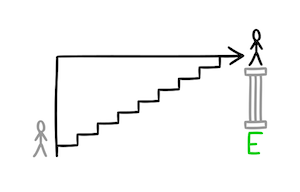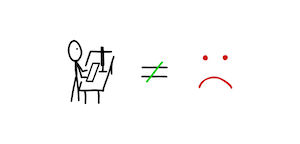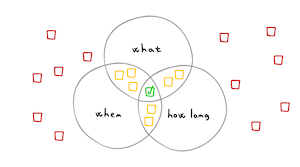How to protect your intentions from getting hijacked
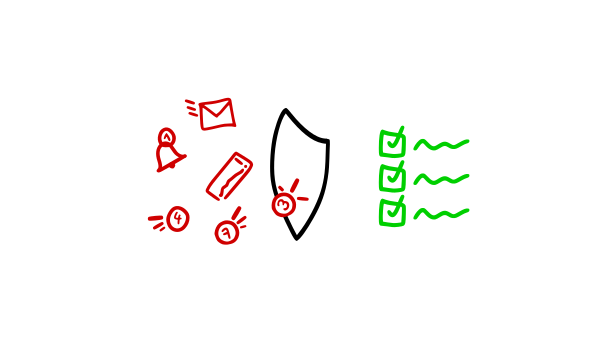
You make a to-do list at the start of the day, and then you get busy. People are messaging you, you remember you needed to do something, you run errands... And at the end of the day, you realize you forgot half the tasks you originally wanted to do.
Many of us have had that experience. Why does it happen so easily and what can we do about it? How can we better protect our intentions from getting hijacked or forgotten?
Let's dive in.
How the Internet prevents us from even forming intentions
As soon as we pick up our phones or open our laptops, there are things vying for our attention: updates to apps, messages, notifications, emails, alerts,...
It only takes a tap or click to get side-tracked.
Modern technology is designed to give us choices, but it's not designed for focused work. This means that it's up to us to restrict our behavior.
This means trouble because it's too easy to build bad habits in moments of weakness. One day you feel bad, so you open Instagram and watch some short videos, and next thing you know, you have a habit of scrolling Instagram for 30 minutes before you even leave your bed.
All of this means that we have to be careful about how we structure our daily choices. We have to create limits for any potentially addictive distraction. Otherwise half our day will be over before we even started acting in a goal-oriented way.
1. Block out distractions in the morning
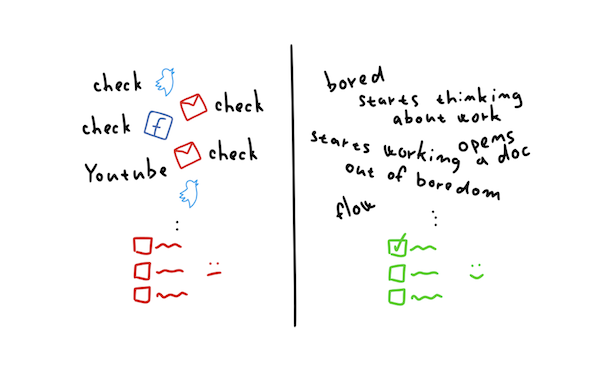
Twitter, Instagram, YouTube,... These services put us into Zombie Mode: we get distracted, and then don't want to do anything productive, just scroll more.
Using these apps before you've done some work is a bad idea. It's hard to switch from these apps to focused work.
Block distractions for long enough to make progress. Once you've done something productive, you feel good, and it's much easier to continue. It starts positive feedback loop that makes you motivated.
If you have a habit of scrolling in the morning, interrupt it by removing that app from your phone for a couple days, see if that helps.
If you open distracting sites in the browser, use our extension to block them for 1 hour after you wake up or until noon. That one change can skyrocket your productivity.
While blocking distractions is essential, it's only the first part of the process. Once you have some distraction-free time, you need to figure out how to use it, what to focus on.
2. Write down on paper what you intend to do

Every day is an opportunity to make progress. Crucially, however, most days we can't finish everything we've dreamt of. We need to find a chunk of work that we can actually get done today.
So, what are the 1-4 important tasks to get done?
Ask yourself this question and take 5 minutes to write this new short list. Ideally do this on a physical piece of paper - an index card, a post-it note, or a page in a notebook.
Digital to-do lists often collect dust. You open another tab, browse, and you forget what you actually meant to do. That's why an analog short to-do list is better.
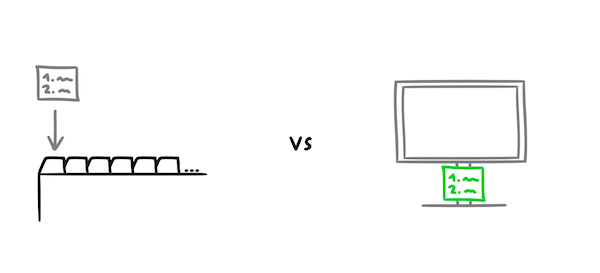
Keep this list in front of you the whole workday. When you have this short list in sight, you naturally glance at it throughout the day. This has the added benefit of reminding you what is actually important when you catch yourself working on unimportant tasks.
You can write it in the morning, or the day before. The advantage of the latter is that, usually, you have a clearer view of what to do at the end of the day because all the relevant information is loaded in your mind. It also helps take your mind off work.
Once you have a list, it's time to get to work.
3. Hide irrelevant things from sight
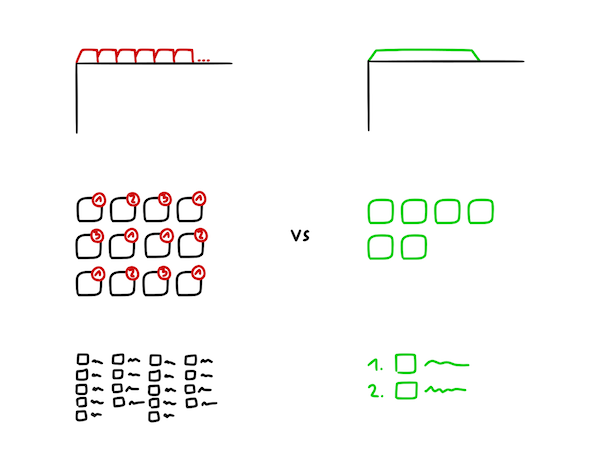
Everything we see while we work is a potential distraction.
Each app icon, each notification badge, or tab in the browser represents someone else wanting something from you. Answer this message, like this post, buy this item,... This can lead us astray.
Remove visual cues to distraction.
These can be physical (like 20 post-it notes with random ideas and tasks all over your workplace) or digital (like icons or notifications).
For physical distraction cues, tidy up. Put post-its on one pile to process later.
For digital cues, silence non-essential notifications, close irrelevant tabs (or use an extension like OneTab to archive them all), or use fullscreen mode (shortcut - F11 shortcut on Linux and Windows, Control + Command + F on a Mac).
One object that's also typically not relevant when you want to focus is your phone. Having it on your desk is like setting a trap for yourself. Use the Rule of 3 Senses: put your phone out of sight, out of reach, and out of hearing (Do Not Disturb mode). After you sit down at your desk, scan your surroundings. If the phone is on your desk or in your pocket, get up and put it in a drawer out of reach or on a high shelf in another room.
The less visual cues for irrelevant habits you see, the easier it'll be to stay on task.
4. Make time to reset

Life happens. Sometimes we slip up and get side-tracked online, other times emergencies come up.
That means that we need to reset.
After you get interrupted, don't dig a deeper hole by going on Twitter or Reddit. Pause.
Take a break. Create a 5-30 min period away from screens when you just think about what you actually wanted to do.
This is a very simple tip, yet so many of us have a habit of opening a distracting website when we have a second, instead of pausing.
Summary
Do these things to protect your intentions from getting hijacked by the Internet:
- Block out distractions in the morning
- Write down what you intend to do
- Hide irrelevant things from sight
- Make time to reset
Yes, they are simple, but how many of us do all of the above consistently?
And don't forget: you can catch up on your favorite online fun after you've done what you wanted to do. If you try to do it before, it just means an easy dopamine guilt-trip that you end up regretting.

